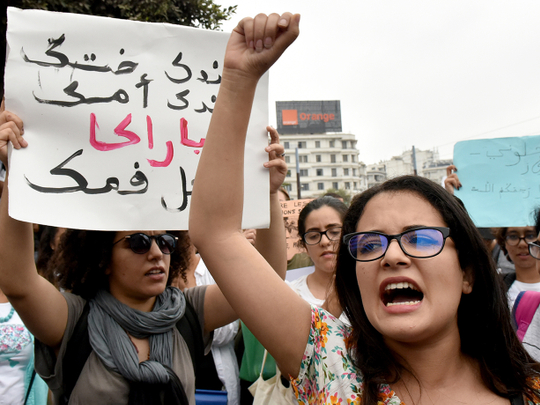
Casablanca: Hundreds of people staged an angry protest Wednesday in the Moroccan city of Casablanca against sexual harassment after footage of a woman being assaulted on a bus caused outrage across the North African country.
“We are not afraid! Liberate public space!” chanted the protesters, gathered in the centre of Morocco’s economic capital, near where the assault took place.
Six teenage suspects were arrested on Monday after footage emerged online showing bare-chested teenagers assaulting a weeping young woman in broad daylight, laughing as they touched her private parts.
“Nobody can remain indifferent... It concerns us all,” said actress and theatre director Fatym Layachi, who was among around 300 protesters.
“It just so happens that this drama was filmed, we heard about it. I can’t imagine how many similar dramas happen every day on buses or elsewhere in public places. This has to stop.”
Oum, a well-known Moroccan singer, said: “I could have been that girl... I am here to say that we have to educate our children better.”
Mohammad, an advertising executive in his 30s, said such incidents were common in Morocco. “Unfortunately we don’t talk about it much,” he said.
Local media wrote of “Horror in Casablanca” and called the attackers “monsters”, saying Morocco, torn between modernity and conservatism, was facing a “crisis of values”.
The latest incident came less than two weeks after footage of men hounding a young woman walking alone in the northern city of Tangier was shared widely on social media, sparking a heated debate.
Morocco officially champions a tolerant version of Islam and does not impose the veil, but women are frequently subjected to insults, derogatory remarks and other sexist attacks in public.
Official figures show that nearly two-thirds of Moroccan woman have suffered violent attacks, often in public places.












